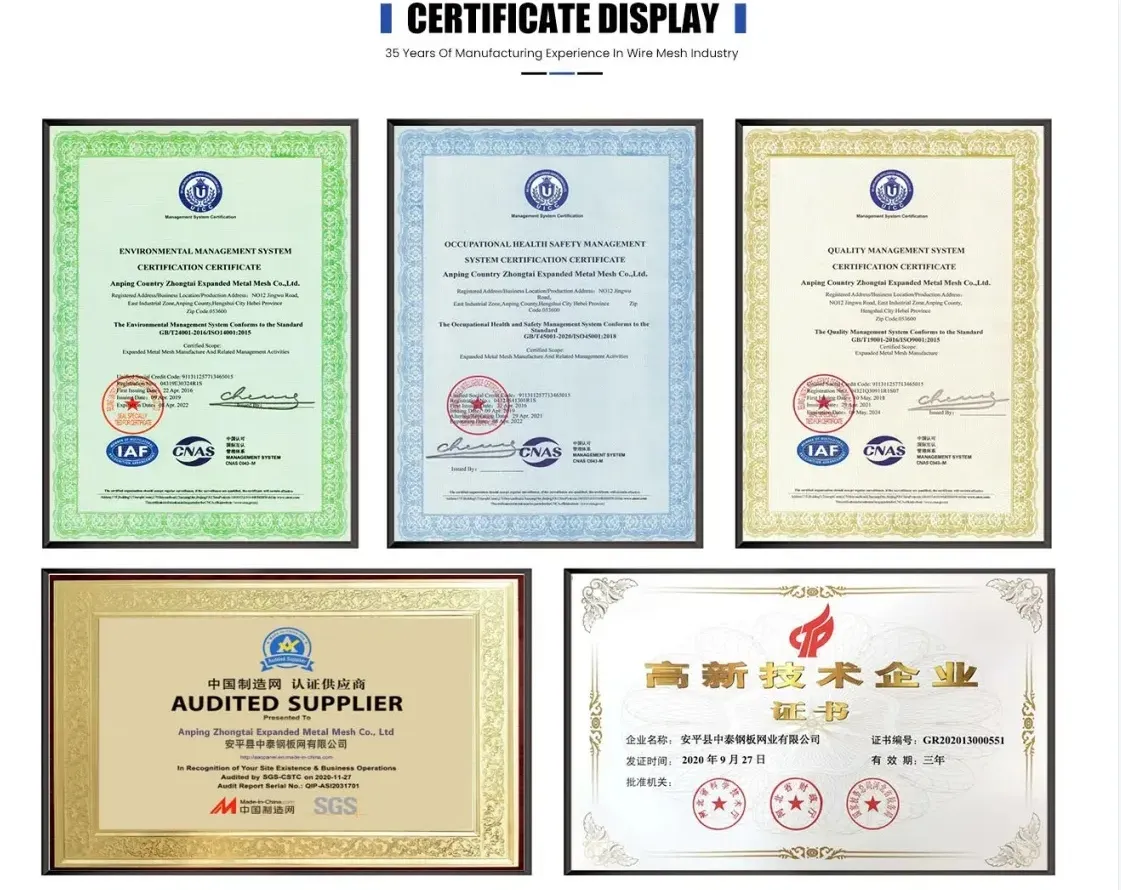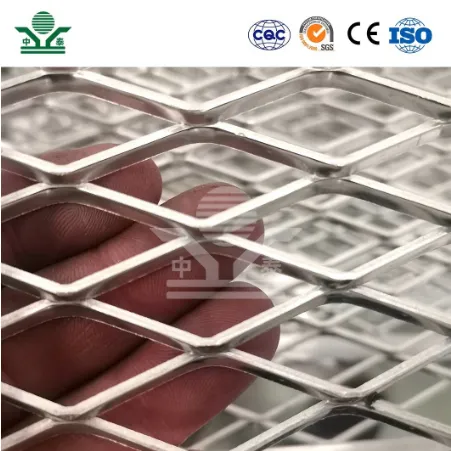1 月 . 11, 2025 11:11
Back to list
expanded metal mesh thickness
Choosing the right expanded metal mesh thickness is crucial for a range of applications, from architecture to industrial uses. Expertise in material selection requires understanding the unique demands of your project, backed by real-world experience and authoritative insight.
Understanding the material's manufacturing process also provides crucial insights into thickness choices. During expansion, the original material's thickness influences the final product's thickness. Knowing this, seasoned professionals can make more informed decisions and anticipate how the mesh's strength and flexibility will suit their projects. Trustworthiness in a supplier is vital when selecting expanded metal mesh. Reliable suppliers will offer detailed material specifications and compliance with industry standards, empowering you to make a choice backed by data. Seek vendors with a proven track record and positive client testimonials to ensure your purchase lives up to its promises. Authority in the field comes from a blend of academic knowledge and hands-on experience. Continuous learning about new technologies and innovations in metal expansion processes keeps one at the forefront of the industry. Participating in workshops and seminars can also solidify one's standing as an expert in the field. Expanded metal mesh thickness selection is not merely a technical decision but a strategic one that blends expertise with experiential insights. From ensuring safety to enhancing aesthetic appeal, the right choice can significantly impact the success of a project. By considering these factors with due diligence, supported by authoritative guidance, your investment in the right expanded metal mesh will undoubtedly pay off, ensuring reliability and performance in any application.


Understanding the material's manufacturing process also provides crucial insights into thickness choices. During expansion, the original material's thickness influences the final product's thickness. Knowing this, seasoned professionals can make more informed decisions and anticipate how the mesh's strength and flexibility will suit their projects. Trustworthiness in a supplier is vital when selecting expanded metal mesh. Reliable suppliers will offer detailed material specifications and compliance with industry standards, empowering you to make a choice backed by data. Seek vendors with a proven track record and positive client testimonials to ensure your purchase lives up to its promises. Authority in the field comes from a blend of academic knowledge and hands-on experience. Continuous learning about new technologies and innovations in metal expansion processes keeps one at the forefront of the industry. Participating in workshops and seminars can also solidify one's standing as an expert in the field. Expanded metal mesh thickness selection is not merely a technical decision but a strategic one that blends expertise with experiential insights. From ensuring safety to enhancing aesthetic appeal, the right choice can significantly impact the success of a project. By considering these factors with due diligence, supported by authoritative guidance, your investment in the right expanded metal mesh will undoubtedly pay off, ensuring reliability and performance in any application.
Next:
Latest news
-
Turn Down the Noise: The Future of Highway Sound Barriers
NewsApr.09,2025
-
Silence the Sound: The Power of Highway Noise Barriers
NewsApr.09,2025
-
Reduce Road Noise Effectively with Highway Noise Barriers
NewsApr.09,2025
-
Noise-Free Living: How Highway Barriers Make a Difference
NewsApr.09,2025
-
Engineered for Silence: Highway Noise Barriers for Every Road
NewsApr.09,2025
-
Effective Noise Control: Highway Barriers for a Quieter Tomorrow
NewsApr.09,2025
Subscribe now!
Stay up to date with the latest on Fry Steeland industry news.
Email addressSIGN UP

